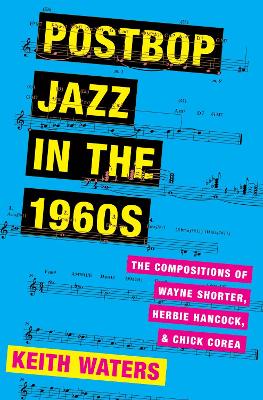Innovations in postbop jazz compositions of the 1960s occurred in several dimensions, including harmony, form, and melody. Postbop jazz composers such as Wayne Shorter, Herbie Hancock, and Chick Corea broke with earlier tonal jazz traditions. Their compositions marked a departure from the techniques of jazz standards and original compositions that defined small-group repertory through the 1950s: single-key orientation, schematic 32-bar frameworks (in AABA or ABAC
forms), and tonal harmonic progressions. The book develops analytical pathways through a number of compositions, including "El Gaucho," "Penelope," "Pinocchio," "Face of the Deep" (Shorter); "King Cobra," "Dolphin Dance," "Jessica" (Hancock); "Windows," "Inner Space," "Song of the Wind" (Corea); as well
as "We Speak" (Little); "Punjab" (Henderson); "Beyond All Limits" (Shaw). These case studies offer ways to understand their harmonic syntax, melodic and formal designs, and general principles of harmonic substitution. By locating points of contact among these postbop techniques-and by describing their evolution from previous tonal jazz practices-the book illustrates the syntactic changes that emerged during the 1960s.
- ISBN10 0190604573
- ISBN13 9780190604578
- Publish Date 29 August 2019
- Publish Status Active
- Out of Print 17 May 2021
- Publish Country US
- Imprint Oxford University Press Inc
- Format Hardcover
- Pages 192
- Language English
